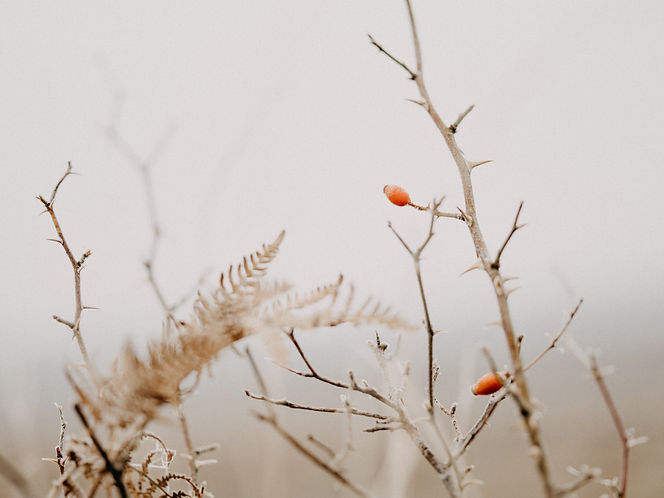One question I often hear from people is "how do I begin practicing magical herbalism?"
Of course there's no one right way to begin. Still, I could have learned a lot more, a lot faster, if I'd had a little guidance to begin with. So here's my list of five things you can do to get started.
1. Narrow it Down. Magical herbalism is a vast subject. Before you begin your studies, ask yourself what, specifically, you want to know. Make a list of topics you'd like to study. For example, do you want to get to know the magical properties of specific plants, such as ones that grow in your garden or neighborhood? Or do you want to learn about herbs for magical healing, or herbs that help increase your psychic powers? Or perhaps you want to know about how to use herbs in the ritual circle?
Once you've made your list, either choose the area you're most interested in or - if you can't decide - choose one using a random number generator, or write the topics on little slips of paper and pull one out of a hat (or bowl or bag). Don't worry - you can save the rest of your list, and choose another topic when you've explored the first one to your satisfaction.
2. Start Close to Home. Many magical herbalism references are written to appeal to as broad an audience as possible, so they list plants from all over the world. There's nothing more frustrating than choosing a plant for a spell or ritual only to find it's not available to you. This doesn't mean you shouldn't buy books on magical herbalism. They're fascinating and informative reads. But you should ALSO get your hands on some field guides to the flora of your region, and learn what is growing near you. You could also visit garden centers and nurseries to discover plants that grow well in your area, even if you aren't planting a garden. A nursery field trip will give you an opportunity to meet the plants in person, with the added benefit of nice neat labels to help you identify them. You can also usually find information online quite easily.
Once you know what grows near you, you can look up some of your favorites in your herbal reference books and begin a core list of potential magical allies.
3. Cultivate Awareness. Your most important tool in learning about magic is your ability to pay attention to detail. In the case of magical herbalism, there are two types of awareness that are essential.
One is learning to observe plants closely in order to identify them properly. You'll need to be able to focus and see the differences between specific kinds of leaves and flowers, and sometimes you'll need the help of texture, taste, or fragrance to differentiate between species which seem similar at a glance. Close observation of plants also allows you to notice if a certain plant seems brighter, more fragrant, or more animate than others. If a plant catches your attention in a significant way, that's probably not a coincidence. It's probably your intuition, or the spirit of the plant, trying to guide you.
The other type of observation is more personal. It involves paying attention to how you are feeling physically and emotionally, and to your thoughts. You must be able to tune in to yourself, because as you begin to work with plants you need to be able to sense how they are affecting you. More than any information in a book, the effect of a specific plant on you, the practitioner, will guide you in how to use the plant for magical and spiritual purposes. Fortunately this kind of awareness can be cultivated with practice.
4. Respect Your Imagination. Suppose you've identified a plant and feel drawn to work with it, but can't find mention of its metaphysical properties anywhere. Don't let that stop you. Instead, learn whatever you can about the so-called mundane qualities of the plant - such as where it grows, its role in the ecosystem, and its medicinal uses (both historical and contemporary). See if the plant features in any myths, legends, or folk tales.
Then allow your imagination - or perhaps your intuition - to build on what you've learned. Say, for example, you learn that the plant is used medicinally to clear congestion from the lungs. Perhaps, then, it would be a good plant for purification. If the herb has multiple medicinal uses, perhaps it might also be good for use in healing magic. If it strengthens the immune system, perhaps it is protective in nature. This kind of imaginative thinking, along with your personal experience of the plant's effects, can lead you to a deep understanding of its metaphysical properties. The practice of the imaginative leap in magic will help you understand that anything can be magical, if only you have the ability to see.
5. Rethink Weeds. I'm sure most of my readers live in a culture that values the tidy lawn and manicured garden, and reviles prolific weeds like dandelion and plantain. You all might have also seen a lot of movies and read a lot of novels about rare herbs for miracle cures and powerful magic. In my experience, however, the character of the plant affects the character of the magic. Weeds are some of the most abundant, resilient plants you can find. To make strong, vibrant, potent magic, use strong, vibrant, potent plants.
The upside of viewing weeds as magical allies is they are plentiful, free, and available even in the most harsh urban wasteland where nothing else will grow. If you don't have access to gardens or wild places, weeds could become your best magical friends.
Does this post look familiar? It once appeared on a different blog, which I'm in the process of dismantling.




Kommentare